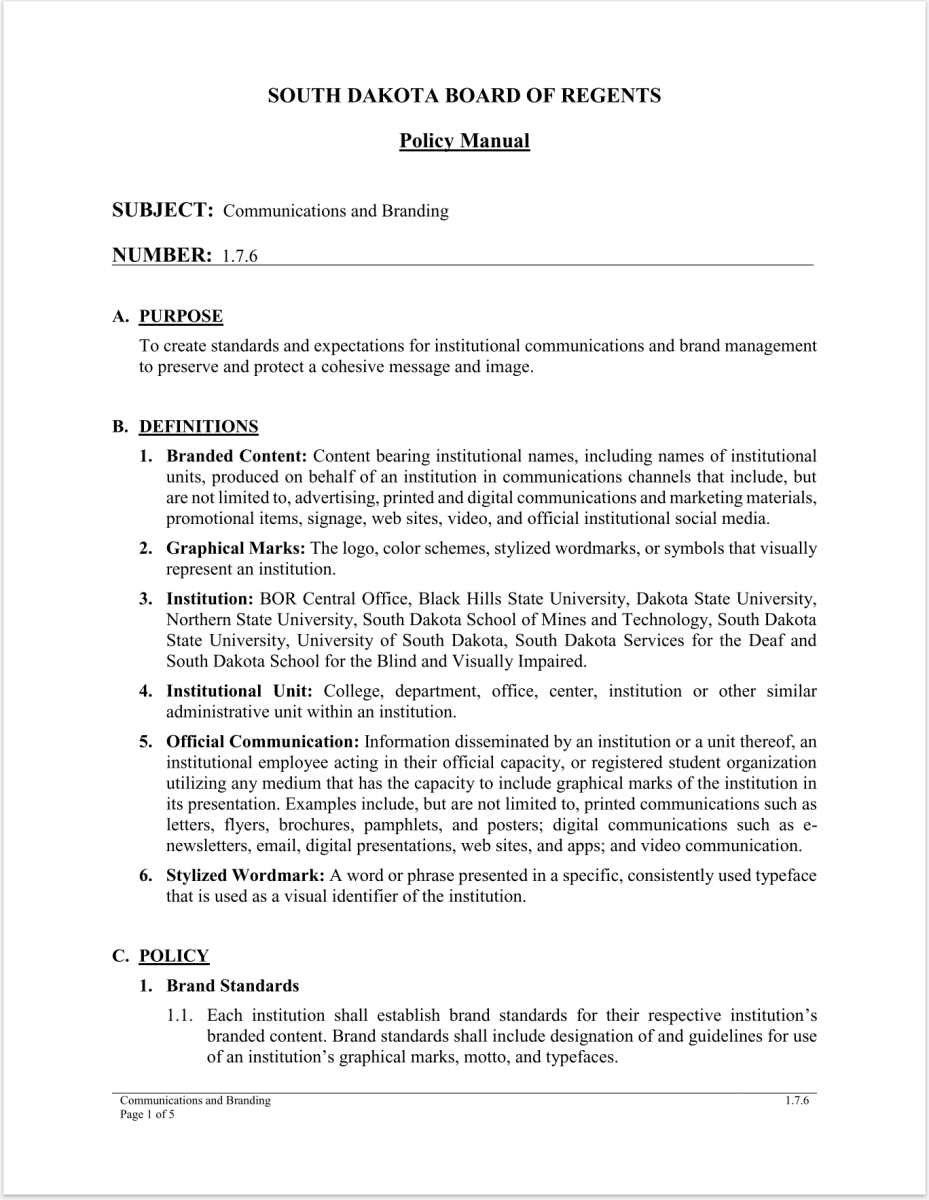A new policy that limits what university units and employees can include in their email signatures. went into effect Friday, Jan. 25. This has led to concerns from faculty and students that including pronouns could violate the policy.
South Dakota BOR created the new branding and communications policy during their board meeting in Brookings in December 2023 after it was discussed internally and at the campus level in the months prior, according to Shuree Mortenson, director of communications for SDBOR.
“Institutions are responsible for establishing and enforcing the branding and communication standards for employees and registered student organizations,” Mortenson said in an email to the Collegian.
Mortenson also said many institutions already have campus guidelines and this policy just helps create uniformity throughout the BOR system.
Contact information is limited to the following:
-Name of originating employee (may include educational credentials
or degrees earned);
-Job title of originating employee;
. Name of unit;
– Email address for originating employee;
– Email address for unit (if applicable);
-. Physical address;
– Mailing address;
– Telephone number(s);
– Weblinks to official institutional websites or social media platforms
(if applicable);
– Primary institutional logo;
– Institutional motto
The purpose of this policy, according to the policy manual, is to create standards and expectations for institutional communications and brand management and to preserve and protect a cohesive message and image.
This policy applies to all university employees, which include students who work for the school.
B, a member of the executive board for Gender and Sexuality Alliance said it’s “unfortunate” some students cannot share this information in their signatures.
“There are some of us who do use they/them pronouns that are nonbinary, and we prefer to use those pronouns in our signage,” B said.
B said GSA is looking into it further to see if they can do anything to take action against the policy.
If an institutional unit or registered student organizations fail to follow the new policy, it “may result in the removal or revocation of authorization or license to utilize an institution’s graphical marks,” according to the policy manual.
If departments, colleges or even offices on campus don’t follow this policy they could lose the right to communicate on behalf of their institution, according to Jeremy Daniel, Faculty Senate president.
“There are potentially substantial repercussions for not following this policy,” Daniel said.
The new policy was discussed at the January Faculty Senate meeting. Daniel said they gathered feedback from senators and heard some concerns some people have expressed to them.
“We are certainly taking a deeper look at that and seeing how those initial conversations go, and then evaluating further action that we plan to take,” Daniel said.
There have also been concerns about this policy coming from faculty, according to Daniel.
“I know from the faculty side of things, I’ve received some emails personally with concerns,” he said. “Some of those concerns question free speech, some of them question action that is representative of SDSU’s values.”
Daniel said faculty do care about this policy and how it impacts students, and they are taking a deeper look into what they can do about it.
New branding, communication policy causes concern for faculty and students
Greta Goede, Editor-In-Chief
January 30, 2024
Page 1 of the policy
2
More to Discover
About the Contributor
Greta Goede, Editor-In-Chief






















